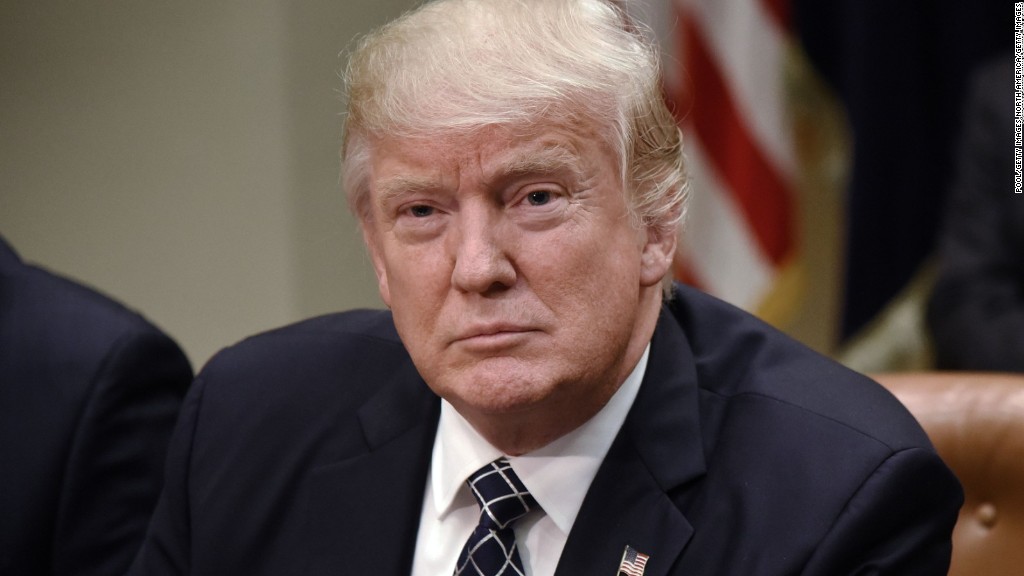When asked recently about the ongoing NAFTA re-negotiations, President Trump said: “Right now, Canada and Mexico have such a great deal that it’s very hard for them to get used to the fact that it can’t be that way anymore.”
[Kevin Kearns | December 13, 2017 | The Hill]
Trump is, of course, correct. But it’s not just Canada and Mexico that have grown used to U.S. acquiescence and inaction in the face of bad deals and unfair foreign trade practices. It’s also China and the rest of the world that take for granted the ease with which they raid the American market and put U.S. manufacturing firms out of business.
The president, however, is apparently stalled in implementing many of the policies he championed during the 2016 campaign and the start of his presidency — when he called for tariffs on offshoring companies and for China to be designated as a currency manipulator.
Trump has signed executive orders requiring studies on America’s trade deficit and China’s forced transfer of intellectual property from U.S. firms. And he initiated Section 232 national security investigations into the health of the domestic steel and aluminum industries, which are under attack by predatory foreign competitors.
But nothing has happened yet.
Why not? The unfair practices the president wants to curtail continue unabated. So far, America’s trade deficit has climbed during his first year by $34.5 billion or 9.3 percent overall, and by $16.8 billion or 6.4 percent with China in particular.
In the case of the steel industry, foreign steel is surging into the U.S., with year-to-date imports up 19.4 percent over the same period in 2016. Finished steel imports — those with the highest value-added — now account for 28 percent of the domestic market.
Global steel overcapacity, much of it Chinese, is estimated to be 700 million metric tons — more than six times total U.S. capacity. Longstanding international discussions have been ineffective regarding any significant reductions in overcapacity.
Further, China’s promises to address its bloated, state-owned steel industry have proven hollow. That means Beijing and other foreign governments continue to protect their inefficient steel industries and foist factory closings and job losses onto U.S. businesses and the thousands of hardworking Americans the president said he would champion.
The Section 232 steel investigation is long since finished. Why hasn’t the president acted?
Here’s part of the problem: When the steel report was sent around inside the administration for comment, some of the president’s globalist-minded advisors objected, fearing retaliation by foreign governments.
The Defense Department in particular thought that corrective action by the president could alienate allies — regardless of the damage that these same allies are doing to the U.S. industrial base. In effect, these advisors recommend protecting rather than confronting countries that have grown comfortable living off the U.S. market through unfair trade practices.
Another part of the problem: Consumers of steel products in the United States have also grown so accustomed to the artificially low prices of imports that they squawk the minute the president tries to stem the illegal practices harming American manufacturing. Domestic companies using imported steel try to make a case that tariffs would raise their prices and squeeze their profit margins.
U.S. Secretary of Commerce Wilbur Ross addressed steel consumers’ opposition at a November conference: “As to the fact that there are more users than there are makers of steel — that’s absolutely true — but there’s not any reason to think that the consuming industries deserve dumped product. And that’s what a lot of them have been living off of — subsidized, dumped product.”
Ross’ criticism strikes at what has become a too common political business model: import-dependent U.S. companies assisting foreign entities in crushing U.S. manufacturers by selling or using competing, subsidized, underpriced foreign goods.
According to Ross, “That’s not a valid basis to build a business. So, unless you adopt a theory that we should let everything be subsidized and come in and destroy all of our industry, then you have to draw the line somewhere.”
It’s high time that Trump follow through on his own analysis and that of his Commerce Secretary and draw a bright line against those foreign companies and nations used to living off of unfair foreign trade practices. He should put a stop to foreign pillaging of the U.S. market — whether directly or through complicit American intermediaries. Presidential action should begin by taking up the Section 232 report and imposing sanctions on dumped foreign steel, and continue until all the multiple, unfair practices hammering American producers are put to a stop.
Kevin L. Kearns is president of the U.S. Business & Industry Council, a national business organization advocating for domestic U.S. manufacturers since 1933.













